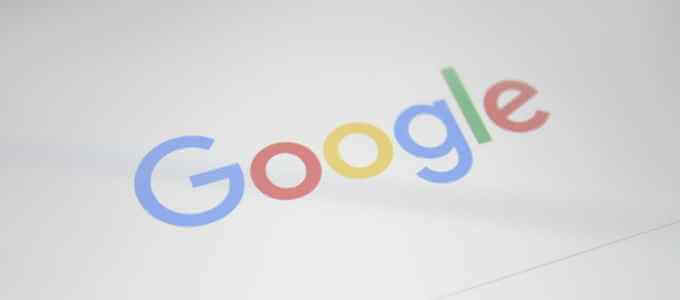
How Media Releases Affect Your SEO
How Media Releases Affect Your SEO
 Search engine optimisation. If you’re in the world of digital, you’ve probably heard the term SEO hundreds of times. And you kind of get it. You know that SEO means optimising your website so that ideally it ranks on the first page of Google. Cool. We’re on the same page (page one we hope). But how do media releases affect your SEO? Well, we’re here to explain.
Search engine optimisation. If you’re in the world of digital, you’ve probably heard the term SEO hundreds of times. And you kind of get it. You know that SEO means optimising your website so that ideally it ranks on the first page of Google. Cool. We’re on the same page (page one we hope). But how do media releases affect your SEO? Well, we’re here to explain.
What is a media release?
A media release is an official announcement and it should cover something exciting! It could be a new store opening, a new product release, an upcoming event (ahem like Opera at Twilight), a new addition to your company (we’re talking boss level) or maybe you’ve hit Wall Street. When the media was covering Uber’s entrance to Wall Street, what gained traction with the public wasn’t that they were a company that could now be invested in. No, the focus was on who would ring the bell signifying that they were open for public investment. The reason this was big news? It wasn’t one of the co-founders or current CEO but a longstanding employee (Uber’s fourth hire) who had initially started out as an intern, Austin Geidt. When you’re drafting your media release, remember to think of an angle that is going to interest your target audience and the wider public. You want to create shareable content. This is what media outlets will pick up on and why they would even begin to backlink to your site.
What is a backlink and what does it have to do with SEO?
A backlink is a link to your website from another. When your website gets linked to from another source your site gets some points. Woo! If the site linking to your site is popular and well established, you get even more points. Woo again! But it gets a little more complicated. Back in the day (10 years ago) backlinks were abused. Google wasn’t looking at the quality of where these backlinks were coming from. The web was filled with spam and it was CHAOS. Fast forward to 2012 and Google introduced an algorithm to deal with the problem. The Penguin algorithm.
What? That’s what it’s actually called?
Yes, we’re not lying. There’s a penguin algorithm, a Panda algorithm and a whole bunch of other algorithms with animal names which make them seem much less scary when you’re trying to understand what the F they even mean. Right now, the Penguin algorithm is the one you want to be learning about. Because it was specifically created to watch backlinks and keywords. Yeah, you’re going to want to stay on Penguin’s good side.
Why you shouldn’t be scared of Penguin
 Ok so the Penguin algorithm might seem scary, but it’s actually amazing news if you want to do business honestly. Why? Well it means that you can no longer buy your way to page one of Google (unless you are buying Ad words). It’s now a quality over quantity world on Google. You can’t have links coming back to you from just anywhere now without repercussions. Quality backlinks don’t have to come from big names. A quality backlink
Ok so the Penguin algorithm might seem scary, but it’s actually amazing news if you want to do business honestly. Why? Well it means that you can no longer buy your way to page one of Google (unless you are buying Ad words). It’s now a quality over quantity world on Google. You can’t have links coming back to you from just anywhere now without repercussions. Quality backlinks don’t have to come from big names. A quality backlink
could come from a website in the same niche as you (relevant) or you could be in the same geographical location (holla if you’re from Perth).
Are you following me?
We know what we said. “You can’t have links coming back to you from just anywhere without repercussions.” That’s not entirely true. You can choose to use a no follow link. This means that when you link to your website, you aren’t going to get any points when people follow that link to it. Whereas if you use a follow link, you’re getting all those points. And more points equal better SEO ranking.
Why would I use a no follow link?
No follow links are useful because they are still able to drive people to your website. Maybe you want to publish your media release on a few third-party websites as well as approaching journalists. No follow links can be a safer option.
It’s good to be prepared
So you’ve decided to reach out and see if you can get your media release in the public eye. That’s great. But what happens if it works? Traffic will start flowing to your site. What are they going to see? Say it with us. It’s good to be prepared. Optimise your site. Make it a beautiful, rich user experience. You want people to leave with a good perception of your brand. Think of it like
a first date. Show your best self.
 Media releases do and will continue to affect your SEO ranking into the foreseeable future. They are worth investing some time in as they are a low-cost way of getting your brand out into the public eye. When your media release is picked up by well-known agencies it has the added benefit of not only scoring those SEO points for your website but increasing trust for your brand. And that’s always going to be a good thing.
Media releases do and will continue to affect your SEO ranking into the foreseeable future. They are worth investing some time in as they are a low-cost way of getting your brand out into the public eye. When your media release is picked up by well-known agencies it has the added benefit of not only scoring those SEO points for your website but increasing trust for your brand. And that’s always going to be a good thing.
This blog is a guest post and has been written by Lucy Tearne, Managing Director (MPRIA) at Crowned PR. At Crowned PR, we’re more than publicity machines. PR is changing and expanding, and we’re driving the movement in Australia. We work in synchronicity with our clients to expertly blend marketing, advertising, and public relations to make wishes come true. We treat your customers and clients like the intelligent consumers they are. As exceptional. Anything that goes against your brand ethics – it simply doesn’t make the cut. We do large-scale event management projects in Perth – think Eat Drink Perth and the Hyde Park fair and also intimate affairs and NFP events. Think brand advocacy and corporate events and products. Think wish granting.

Karen Dauncey
Karen Dauncey has been working in SEO since 2003. She specialises in helping businesses get found online through Google using Search Engine Optimisation (SEO).
Karen's wealth of SEO knowledge and practical digital marketing experience comes from running her own SEO and Google Ads agency, Blue Cherry Online Marketing since 2008. Karen has optimised over 1000 websites, managed millions of dollars' worth of spend on Google Ads and has a solid understanding of the constantly shifting industry of digital marketing and SEO. This gives her a unique advantage when it comes to being able to recommend the right online marketing strategies for your business.
She is the founder and creator of The SEO School an online SEO Course to help teach business owners how to do their own SEO. She regularly delivers educational programs for both Local, State and Federal Government and was an advisor for the ASBAS Digital Solutions Program. Karen’s passion and commitment to help small business owners get found online is the driving force behind her online school, making SEO advice accessible to all with free resources and online courses.
Karen has attended search engine conferences in London, Stockholm, Adelaide and Sydney, and was also invited to attend a pilot Business Coaching Course at Google’s Head Office. She has a Diploma in Marketing from the Chartered Institute of Marketing in the UK.
She is also the co-owner of the Digital Experts Directory, an online directory for female serviced-based businesses to promote their business (with a great backlink for SEO).
To keep up to date with the latest in SEO, join her Facebook group The SEO School Community or follow her on Facebook
or LinkedIn.


 Search engine optimisation. If you’re in the world of digital, you’ve probably heard the term SEO hundreds of times. And you kind of get it. You know that SEO means optimising your website so that ideally it ranks on the first page of Google. Cool. We’re on the same page (page one we hope). But how do media releases affect your SEO? Well, we’re here to explain.
Search engine optimisation. If you’re in the world of digital, you’ve probably heard the term SEO hundreds of times. And you kind of get it. You know that SEO means optimising your website so that ideally it ranks on the first page of Google. Cool. We’re on the same page (page one we hope). But how do media releases affect your SEO? Well, we’re here to explain. Ok so the Penguin algorithm might seem scary, but it’s actually amazing news if you want to do business honestly. Why? Well it means that you can no longer buy your way to page one of Google (unless you are buying Ad words). It’s now a quality over quantity world on Google. You can’t have links coming back to you from just anywhere now without repercussions. Quality backlinks don’t have to come from big names. A quality backlink
Ok so the Penguin algorithm might seem scary, but it’s actually amazing news if you want to do business honestly. Why? Well it means that you can no longer buy your way to page one of Google (unless you are buying Ad words). It’s now a quality over quantity world on Google. You can’t have links coming back to you from just anywhere now without repercussions. Quality backlinks don’t have to come from big names. A quality backlink Media releases do and will continue to affect your SEO ranking into the foreseeable future. They are worth investing some time in as they are a low-cost way of getting your brand out into the public eye. When your media release is picked up by well-known agencies it has the added benefit of not only scoring those SEO points for your website but increasing trust for your brand. And that’s always going to be a good thing.
Media releases do and will continue to affect your SEO ranking into the foreseeable future. They are worth investing some time in as they are a low-cost way of getting your brand out into the public eye. When your media release is picked up by well-known agencies it has the added benefit of not only scoring those SEO points for your website but increasing trust for your brand. And that’s always going to be a good thing.

